Far Cry 3: "This Game is Meta; it's About Videogames"
Interview with Far Cry 3 writer Jeffrey Yohalem
Far Cry 3, a savage, open-world, first-person shooter from Ubisoft is prepped for a release on 30 November. We spoke to the game's writer Jeffrey Yohalem, about how Far Cry 3 is set to challenge the youth, societal structure and games industry of today.
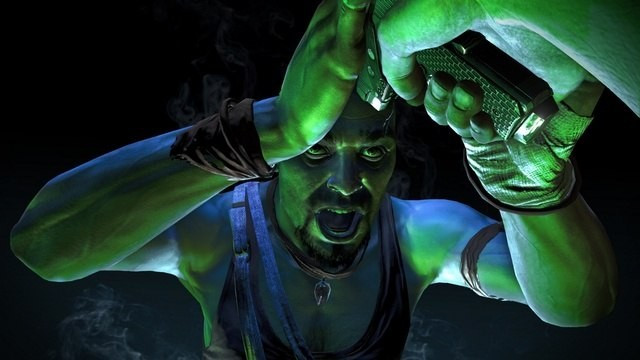
IBTimes UK: There was talk earlier this year that Far Cry 3 was inspired by stories from people who had been travelling themselves. Is that so?
Jeffrey Yohalem: This game is Meta; it's about videogames. And all the characters in the game are parables. So, it's like Through the Looking Glass where all the characters represent a perspective on society. The characters weren't based on real stories - but the island, the open-world and how that's crafted, is.
The characters are a game for the players to unwrap. They all have secrets and you have to delve into them, because they all have a perspective on society. Far Cry 3 is about what's going on with my generation and escapism through videogames.
IBT: What exactly are you trying to say about this generation?
JY: The reason I'm doing this is because Far Cry as a series has always been inspired by Apocalypse Now! or Heart of Darkness and they were a critique of what happened to the generation of the seventies. So, for me, the biggest issue facing our generation today is escapism. And the structure of society has become this web where people of Jason's [the main protagonist's] age have a lot of trouble navigating, so they turn to things like videogames and the internet for escape.
And so Far Cry takes that and creates this Peter Pan island which allows you to explore what's so enticing about videogames, but at the same time, the story is having a dialogue with the player, about things like drugs, which are a form of escape, or your boss, or the school system. It's about looking at the things that people are escaping from nowadays.

IBT: What are you trying to say about these forms of escapism?
JY: I don't necessarily want to say what I'm trying to say about them because then the game loses some of its enticement.
I don't want to say I have the definitive opinion, but basically I'm looking at the history of social philosophy. If you start with Russo and you move forward and look at Nietzsche and the psychological traps we fall into, and how people become sheep and obey things like money and infrastructure, then all the characters in Far Cry 3 take you through that journey and the player ends up going through that web.
IBT: So Jason's quite inexperienced and we see him having to deal with a world that he can't escape from...
JY: Yeah. This is a story about Jason. He's reliant on escape. At the beginning we see him and his friends skydiving and later you discover he doesn't have a job - he hasn't grown up.
His older brother represents a typical videogame character - he's the guy you would normally play. You normally play a character that's got everything, who's the ultimate agent, the ultimate warrior. It feels like he has everything together.
It's like Alice's journey down the rabbit hole, where she has to look at society through fresh eyes once she's no longer safe with her sister.
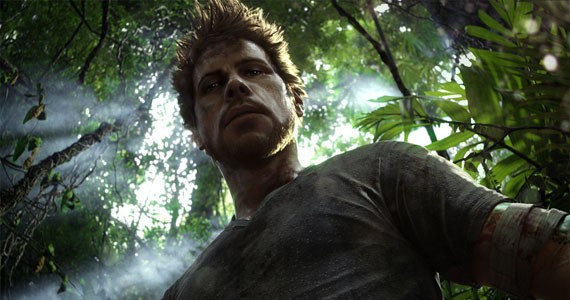
IBT: So the characters all resemble something from computer games?
JY: Yes, so for example one of them is a CIA agent and in videogames the fate of the earth is at stake, so you have to have these top secret organisations like the Men in Black that are talking to you.
And they're talking to you because you are the ultimate hero, so we have this CIA agent in the game and he's talking to you in a way that he normally wouldn't in computer games. We're looking at these situations as if for the first time.
IBT: You used the word "Meta". How do these quite high ideas fit with the rest of Far Cry 3 which has been touted as gritty and survivalist?
JY: This is not a satire; it's not about breaking the fourth wall. Computer games have always been about these extreme things - it's like someone shouting or whispering, neither one is the right volume. And so turning the thing to 11 would be to have the game be super-satire and all in your face, so we're going to a subtle mix.
Everything I'm telling you about is stuff you can find on your own, and contemplate on your own.
I think the realism really adds to that depth - you can see Far Cry 3 without any of the Meta stuff. I think it's a coming of age story on every level. It's like Dante's Inferno where you can read it as a story about a man journeying into Hell, but if you're familiar with Dante and the Renaissance you can also see all these jokes and references in there, too.
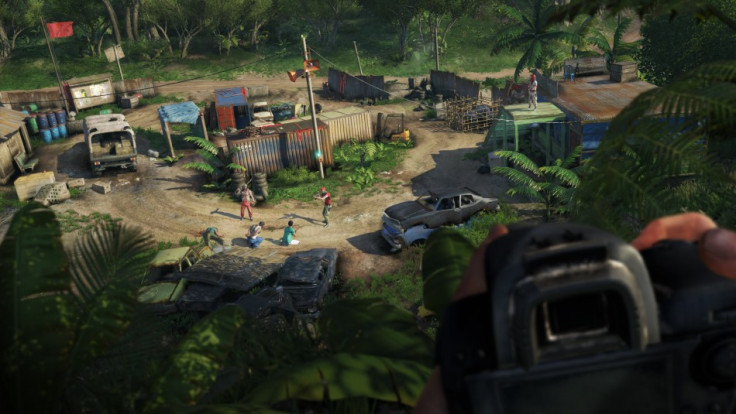
IBT: So it depends what you bring to the game as a player?
JY: Right. For something to be a classic it has to be universal to a degree.
IBT: We noticed that the way Jason's friends react to him changes as he does things, as he does more killing.
JY: That's very important to me, to acknowledge the player's existence. If the game doesn't do that it makes you leave, it makes the game feel cold. I want Far Cry 3 to feel like it's having a conversation with YOU.
It's completely different from film writing; films pretend that the audience doesn't exist. They're a diorama for people to peek into. In a game, it's the player's world. So, my approach has been influenced by method acting, the way director's work with actors.
The player is an actor and needs to treated as the centre of the performance. That doesn't mean the directorial intent disappears. If the director can allow for an actor to perform Hamlet, then it's the actor's and the director's performance.
IBT: What kind of research did you do while work on Far Cry 3?
JY: One of the big influences on me was a Jonathan Franzen article that he wrote for the New York Times where he talks about how people are falling in love with tech devices. He talks about how these devices are a mirror, and we're falling in love with ourselves. It ties into that becoming responsible or escaping.
But it's not just a criticism of people who choose to escape, because if you look at the structure of society right now a lot of those people are crushed. I know a lot of people who are trying to get jobs and can't.
It's like a pyramid scheme where young people are punished until they can get into a position to punish others. There are two ways to look at it, like, you shouldn't try to escape but reality is very hard right now. This is not a clear perspective I want to offer.
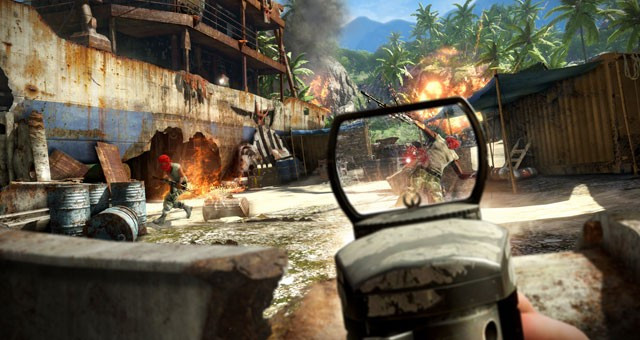
IBT: What are the positive and negative aspects of Jason?
JY: Jason is an optimist; I think that's something unique to this generation, that idea that inhibiting structures shouldn't exist and that if you have a great idea that should be rewarded. But at the same time, the negative is that that's naïve and that it allows them to be taken advantage of.
It's also a kind of selfish thing, too, this obsession with what am I going to tweet or put on my Facebook to make me look better.
Everyone is auditioning for society. People want to look the best; they want to pad their college resume so that they get onto the best programme. It's driven into people now that everything they do has to be tailored to admission officers.
IBT: And are there any games that have inspired that?
JY: BioShock was a huge influence on me, and I just played a game called The Stanley Parable which was fantastic. It's about these issues, the Meta issues. It's literally talking to the player.
Portal does it in an in-between way, where it talks to the player but doesn't, so Portal too. But Prince of Persia, the sidescroller, The Last Express, Sibera, The Neverending Story - all of these things are influences because they're using the ideas that they have to create a world that you go into, which is different from doing something that's just commentary and doesn't allow you to penetrate into it.
Just sniggering at things is another way of hiding; if everything you do is a like a joke then you're protecting yourself and not giving anything. The goal is to give people something.
IBT: What would be the ideal way, for you, for people to react to the game?
JY: I would like people to come to it the way that people came to Close Encounters of the Third Kind back in the day, or seeing the latest Tarantino film, where you come not knowing what it's going to be but knowing that you're going to take a fantastic journey.
I don't think it will destroy your experience if you don't come to it that way, but if you don't realise that this is a shooter that's aware of what it's doing then you might miss out. The people who created this are trying to say something.
There are moments in the game that seem to be one thing, and if you approach those moments without thinking about them then that's a shame...There are moments that seem cliché but there is a reason that we did them.
We want people to think about what they're doing in life more. We have such a short time to be alive, so the ideal goal is that every minute should be spent fully alive, and being fully alive means being aware of your place in history and in space.
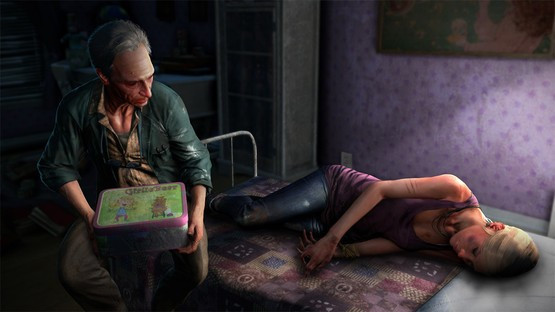
IBT: It's always rewarding when you can see a developer messing with you...
JY: There are some games I play where I feel like the game maker went to the bathroom for twenty hours. And that's depressing, because it's like they're absent. So, the idea is that people come away saying "I lived something and it made me reconsider my own life."
© Copyright IBTimes 2025. All rights reserved.






















